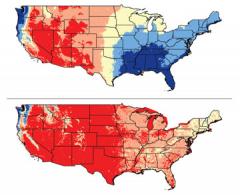
This Article From Issue
November-December 2022
Volume 110, Number 6
Page 322
"We are fighting for an educated nation,” says Ukrainian sociology professor Fedir Shandor in the cover article by Olha V. Harmatiy. As Harmatiy describes in “Ukrainian Scientists and Educators in Wartime,” Shandor is still teaching even though he is on active military service, via his cell phone between combat shifts. Shandor’s situation serves as an example that scientists have not been removed from the realities of war in Ukraine; many have been displaced and some have been killed. Harmatiy, who is a professor of journalism and mass communication at Lviv Polytechnic National University in Ukraine, tells us that many scientists are unable to continue with their research, either from lack of access or because of trauma. For those who are able to continue their work, she describes how the military conflict has shifted the focus of research: Sensors intended for archaeology or geophysics are now adapted for detecting explosive devices; chemistry research focuses on wound dressings; museums and galleries have been repurposed as spaces for volunteers to build camouflage nets. Looking to the future, Harmatiy notes that the focus of Ukrainian science will be shifted to assisting war recovery efforts, such as demining, rebuilding infrastructure, and developing ways to cope with a whole population’s trauma. International diplomacy and policy statements will have a large role to play in what happens to Ukraine’s scientists and their research, she says.
Science policy can have a great effect on the future of STEM education in every country and every setting. Sigma Xi, American Scientist’s publisher, has a mission of fostering the future of the research enterprise, which includes supporting students who are pursuing careers in STEM. The Journal of Science Policy and Governance (JSPG) is a peer-reviewed journal that provides opportunities for students and early-career researchers to publish on science policy topics. Sigma Xi teamed up with JSPG to produce a special issue on “Re-envisioning STEM Education and Workforce Development for the 21st Century.” You can read all the papers online at sciencepolicyjournal.org. We invited the authors of the top papers in that issue to write Science Policy columns for American Scientist on their research topics. You can see the first set of these columns in this issue. The first, by Christina Kling and her colleagues, discusses mental and physical health care resources for graduate students in STEM fields. The second, by Benjamin O’Brien and Thiago Arzua, focuses on family support policies for students. Additional columns will be featured in upcoming issues.
Some of our readers who are scientists tell us that they do not see a reason to have any involvement in science policy; they wish to do their own research and leave any outside considerations for others to deal with. Indeed, it’s likely that scientists in Ukraine wish that they could concentrate on their work and not have to fight a war. But in much the same way that a healthy democracy requires the participation of involved, informed citizens who vote, an equitable research system requires the engagement of its members, who must act to ensure that ethical, evidence-based practices are established and upheld. That engagement cannot be separated from research itself. This work can be daunting and can feel overwhelming, but it is just as important as scientific research itself. And local involvement, at the level of a single laboratory, a department, or an academic institution, can have a positive effect on the scientific research environment. How do you try to make a difference? Write to us and let us know. —Fenella Saunders (@FenellaSaunders)

American Scientist Comments and Discussion
To discuss our articles or comment on them, please share them and tag American Scientist on social media platforms. Here are links to our profiles on Twitter, Facebook, and LinkedIn.
If we re-share your post, we will moderate comments/discussion following our comments policy.